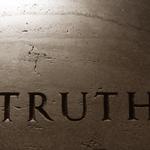Truth Commissions in Non-Transitional Contexts: Implications for Their Impact and Legacy
In the 21st century, it is commonly accepted that states have a legal and normative obligation to provide the truth about histories of violence and repression; truth commissions are Often suggested as a means of fulfilling this obligation. Truth commissions came to prominence as a result of their use as part of transitions from military rule to democracy in Latin America and from apartheid to inclusive democracy in South Africa. The global attention paid to the South African Truth and Reconciliation Commission (TRC), in particular, popularised this form of transitional justice. The truth commission model gained favour at least in part because it appealed to a variety of audiences. For perpetrators and those who feared that criminal accountability would be destabilising, truth commissions were less threatening. For many victims and activists, by contrast, truth commissions represented some measure of justice. As such, truth commissions seemed to provide a useful compromise, addressing past abuses in some fashion during attempted democratic transitions. In fact, in the wake of the South African TRC, truth commissions came to be seen by many as valuable in their own right, in that they could provide a valuable contribution to social and psychological repair, as well as the (re)construction of more democratic political institutions after political transitions.
As the truth commission model gained greater visibility and more adherents, it has also been increasingly utilised in a variety of other contexts. First, truth commissions have been employed in war-to-peace transitions. Even further, the model has sometimes been applied to contexts where little to no real political change has occurred at all. This chapter distinguishes three non-transitional contexts in which truth commissions have been employed with growing frequency. First, truth commissions are sometimes created by governments after they have decisively defeated an armed threat. Second, firmly entrenched authoritarian regimes have sometimes created truth commissions to achieve policy goals. Finally, truth commissions have sometimes been set up in wellestablished democracies in order to address historical wrongs that occurred in previous generations. One may quibble about whether these different types of investigative commissions belong in the same category. However, Often in policy and academic debates, these types of investigations are lumped together for the purposes of theory building and hypothesis testing.
https://doi.org/10.1017/9781780687957.010



